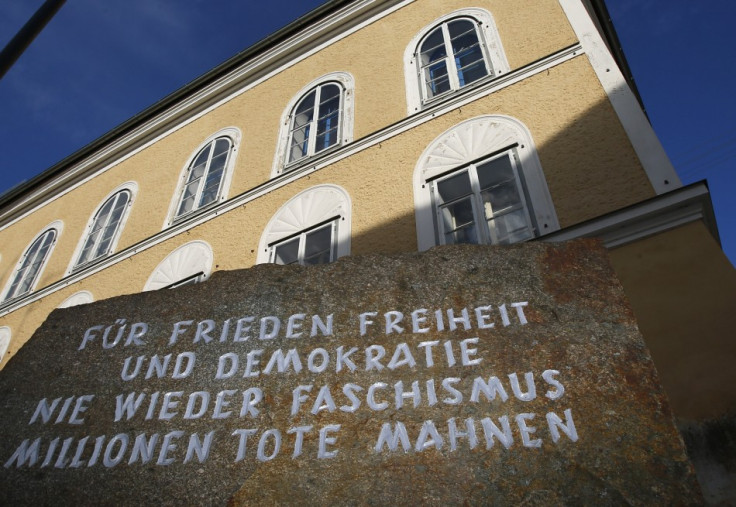Adolf Hitler's Birthplace: Immigrant Aid Charity Volkshilfe Denies Letting Bid
Gasthaus zum Pommer building in Austrian town of Braunau am Inn at centre of charity denial

An Austrian charity has denied it planned to open an office for helping the integration of immigrants in the house where Adolf Hitler was born.
Volkshilfe, which translates as "In People's Aid", was said to want to sublet the property in Braunau am Inn - an offer that was being favourably considered by Austria's interior ministry, said reports.
But Volkshilfe told IBTimes UK that it had never made an offer for the house.
"Volkshilfe never asked the interior ministry to open an office in the house where Hitler was born," said Walter Deil, the charity's head of communications.
Deil said Volkshilfe already operates an office for helping immigrants in the town and has other centres providing geriatric and disabled care and help for the unemployed.
Hitler was born in the Gasthaus zum Pommer building in 1889 and spent the first two weeks of his life there, before his family moved to another part of town.
The villa has been leased by Austria's interior ministry since 1972, but has lain empty since 2011. It was last occupied by a workshop for the mentally and physically handicapped.
The future of the villa has become a major concern for locals because it attracts hundreds of neo-Nazi fanatics.
In November Frantz Klintsevich, a member of Vladimir Putin's United Russia party, vowed to buy the building from its owner Gerlinde Pommer and then destroy it "demonstratively".
Volkshilfe's head, Karl Osterberger, was quoted in the Kurier newspaper that he favoured the possibility of a charity moving into the building to give "a great signal".
"Osterberger merely said it would carry an announcement effect if a charity moves in this house but our charity never requested to move into the building," Deil said.
"We think that use for charitable interests could be a sensible alternative to destruction."
© Copyright IBTimes 2025. All rights reserved.






















